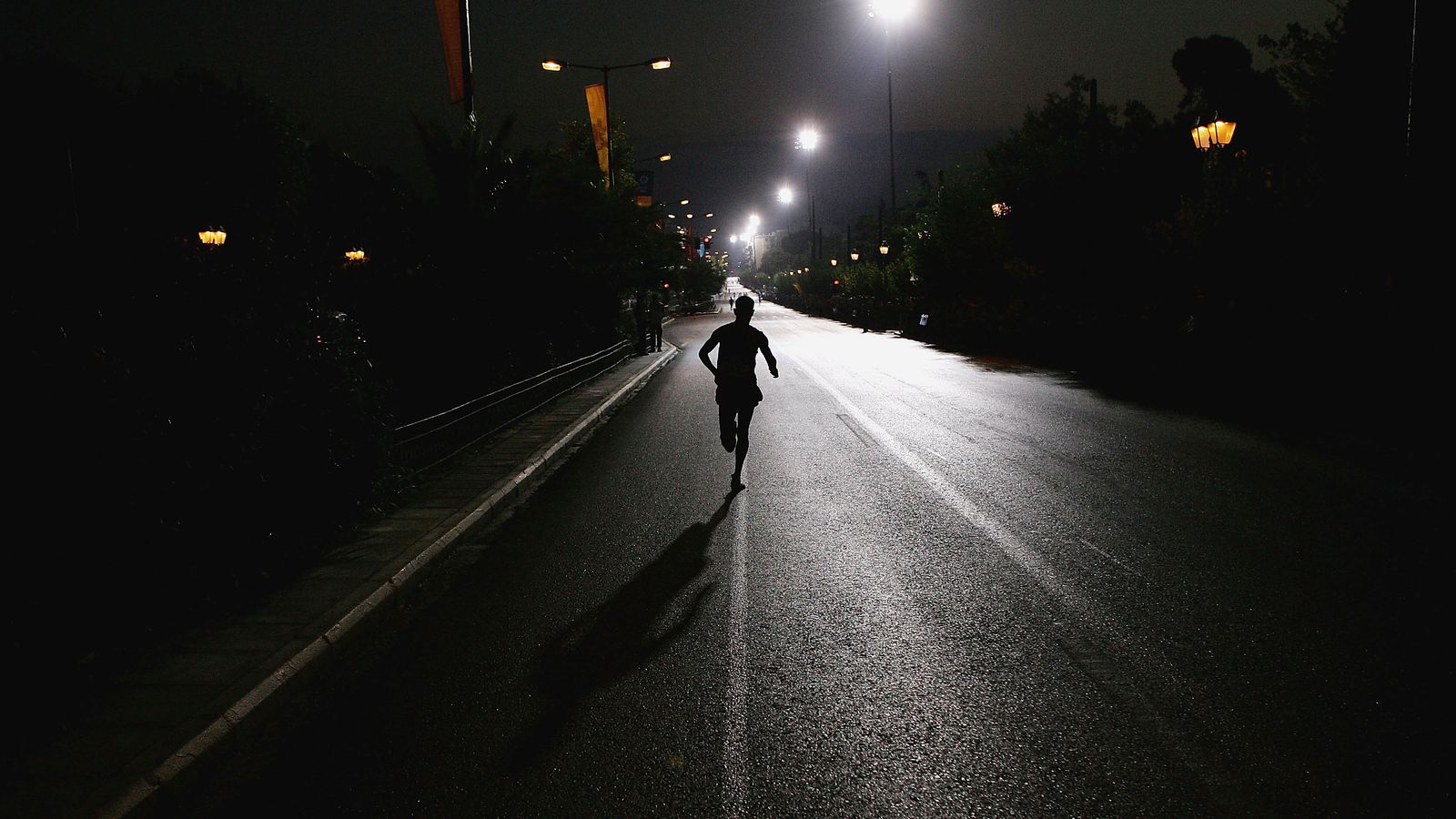Types of Running Away Dreams
The Flight Response: What’s Driving You?
The flight response is a natural and universal human reaction to stress, fear, or anxiety. It’s a primal urge to escape danger or uncomfortable situations, which can manifest in various forms of running away dreams. These dreams often symbolize an individual’s emotional state, coping mechanisms, and unconscious mind.
There are several types of running away dreams that can offer insight into what’s driving someone’s thoughts and emotions. Some common themes include: fleeing from a personal issue or problem; escaping the consequences of one’s actions; avoiding confrontation or conflict with others; and feeling overwhelmed by responsibilities or expectations.
In many cases, running away dreams reflect an individual’s inability to cope with their current situation or their desire for freedom and independence. They may feel trapped in their life, whether it’s due to external circumstances or internal fears and doubts. These dreams can serve as a call to action, encouraging individuals to confront their problems head-on or seek support from others.
From an analytical perspective, running away dreams can be broken down into several subcategories, each with its own underlying message. For example:
Fleeing from a personal issue or problem: This type of dream may indicate that the individual is avoiding dealing with a specific issue in their waking life. They may be trying to escape the stress and anxiety associated with it or feeling overwhelmed by the situation.
Escaping the consequences of one’s actions: Running away dreams can also signify an attempt to evade responsibility for past mistakes or regrets. Individuals may feel guilty, anxious, or fearful about facing the repercussions of their choices.
Avoiding confrontation or conflict with others: Dreams involving running away from others can reflect a fear of confrontation or a desire to escape difficult conversations. This may stem from past experiences of conflict or an individual’s coping mechanisms for dealing with challenging situations.
Feeling overwhelmed by responsibilities or expectations: Running away dreams can also symbolize a sense of overwhelm and burden, particularly when it comes to meeting others’ expectations or fulfilling one’s own responsibilities.
Ultimately, the interpretation of running away dreams depends on individual circumstances and personal associations. By exploring the underlying emotions and motivations driving these dreams, individuals can gain insight into their emotional state and develop strategies for coping with stress, anxiety, and other challenges in their waking lives.
This type of dream involves feeling overwhelmed, stressed or anxious in a waking situation, causing you to run away.
The type of dream where one feels overwhelmed, stressed, or anxious in a waking situation and consequently runs away, is quite common among individuals. This phenomenon is often linked to unresolved emotions, repressed thoughts, or unaddressed problems in the person’s life.
There are several types of running away dreams that can provide insight into an individual’s psyche and emotional state. Understanding these different types can help individuals identify the underlying causes of their feelings of overwhelm and anxiety.
Types of Running Away Dreams
The Pursued by Someone or Something Dream
- This type of dream involves feeling threatened, intimidated, or pursued by someone or something in the waking world.
- The individual may feel a strong sense of fear, anxiety, or panic, leading to the urge to run away.
- Underlying causes: This dream can be linked to feelings of vulnerability, lack of control, or past traumas.
The Unknowing Destination Dream
- In this type of dream, the individual runs away without knowing their destination or what lies ahead.
- The lack of clarity and purpose can be overwhelming and anxiety-provoking.
- Underlying causes: This dream may indicate feelings of uncertainty, aimlessness, or a sense of being lost in life.
The Chasing Dream
- This type of dream involves the individual running away from something, such as an object, a situation, or even their own thoughts and emotions.
- The sense of being chased can be intense, leading to feelings of panic and anxiety.
- Underlying causes: This dream may symbolize the individual’s attempt to escape from their fears, worries, or unwanted responsibilities.
The Running but Getting Nowhere Dream
- In this type of dream, the individual runs away, but no matter how far they go, they seem to be getting nowhere.
- The sense of frustration and helplessness can be overwhelming.
- Underlying causes: This dream may indicate feelings of stagnation, lack of progress, or a sense of being stuck in life.
The Running with Others Dream
- This type of dream involves the individual running away with others, often in a group setting.
- The collective energy and sense of community can be motivating and empowering.
- Underlying causes: This dream may symbolize the individual’s desire for connection, support, or a sense of belonging.
In conclusion, running away dreams are a manifestation of an individual’s emotional state and unconscious mind. By understanding these different types, individuals can gain insight into their underlying fears, anxieties, and unresolved emotions.
According to Dr. J Allan Hobson’s research at Harvard University, the brain processes emotions during REM sleep, making dreams about running away a reflection of your emotional state.
Dreams about running away are a common phenomenon that has puzzled people for centuries. According to Dr. J Allan Hobson’s research at Harvard University, the brain processes emotions during REM sleep, making dreams about running away a reflection of your emotional state.
There are several types of running away dreams that can have different meanings depending on their context and personal associations. Here are some examples:
- Literal Running Away: This type of dream often indicates feeling overwhelmed or anxious in waking life, causing you to feel the need to escape from a difficult situation.
- Emotional Escapism: When you’re running away from someone or something in your dream, it may symbolize avoidance of emotions, responsibilities, or uncomfortable situations in your waking life.
- Fear of Being Caught: Running away dreams can also represent a fear of being caught or exposed in some way, such as getting caught by authorities, exposing a secret, or facing the consequences of one’s actions.
- Pursuit of Happiness: On the other hand, running away dreams may indicate a desire for freedom and happiness, symbolizing a need to break free from constraints, whether they’re self-imposed or external.
- Chasing One’s Shadow: In some cases, running away dreams can represent an avoidance of one’s own desires, fears, or aspects of oneself that are being suppressed or hidden.
It’s essential to remember that dream interpretation is highly personal and can vary from person to person. To better understand your running away dreams, consider the following:
- Think about what you were doing immediately before falling asleep.
- Reflect on any current stressors or challenges in your life.
- Consider how you’ve been feeling emotionally during the past few days.
By examining these factors and exploring your personal associations with running away, you can gain a deeper understanding of what your dreams are trying to reveal about yourself.
Running Away as a Symbol
Escaping Uncomfortable Emotions or Situations
Running away can be a powerful symbol in dreams and waking life, often representing an individual’s desire to escape uncomfortable emotions or situations.
One possible interpretation of running away is that it indicates a person’s avoidance of responsibility or accountability for their actions.
This could be due to feelings of guilt, anxiety, or fear associated with facing the consequences of one’s decisions.
Running away might also symbolize a need for freedom and independence from societal expectations, relationships, or other constraints that feel suffocating.
In this context, running away is not necessarily about physically fleeing a situation but rather about breaking free from emotional entanglements or mental prisons.
On the other hand, running away can also be a coping mechanism for dealing with overwhelming stress, anxiety, or trauma.
When faced with a challenging situation, individuals may feel an intense urge to escape and find temporary reprieve, even if it means avoiding the problem altogether.
This avoidance behavior can provide short-term relief but ultimately perpetuate feelings of guilt, shame, or anxiety in the long run.
Other possible interpretations of running away include:
- A desire for escape from a toxic relationship or environment.
- An attempt to repress uncomfortable memories or emotions associated with past traumas.
- A need for self-preservation in the face of adversity, such as emotional abuse or neglect.
To overcome feelings of running away and develop healthier coping mechanisms, individuals can try:
- Facing their fears and confronting uncomfortable emotions head-on.
- Practicing self-compassion and acknowledging the validity of their emotions.
- Seeking support from trusted friends, family members, or mental health professionals.
- Engaging in activities that promote stress reduction and relaxation, such as exercise, mindfulness, or creative pursuits.
By acknowledging the underlying reasons for running away and developing more constructive coping strategies, individuals can break free from the cycle of avoidance and cultivate a stronger sense of self-awareness and emotional resilience.
Running away in a dream can symbolize an attempt to escape uncomfortable emotions, memories or situations.
Running away in a dream can be a universal symbol that transcends cultures and languages, conveying a sense of escape or evasion from something unpleasant. Symbols in dreams often hold hidden meanings, and the act of running away is no exception.
In a psychological sense, running away in a dream may indicate an individual’s attempt to escape from uncomfortable emotions, memories, or situations that evoke feelings of anxiety, fear, or overwhelm. This behavior can manifest in different forms, such as physically fleeing the scene or mentally disengaging from the issue at hand.
The act of running away may also suggest a desire for control and agency in one’s life. When faced with situations beyond their grasp, individuals may feel overwhelmed and resort to flight, rather than engaging with the problem head-on.
In some cases, running away can be an avoidance mechanism, masking underlying issues or emotions that require attention and resolution. This behavior can lead to stagnation and further distress, perpetuating a cycle of escape and denial.
However, it’s also possible for running away in a dream to symbolize a need for change and renewal. In this context, the act of fleeing may represent an individual’s desire to break free from restrictive patterns or environments that no longer serve their growth and well-being.
Dream analysts often explore the underlying reasons for running away, taking into account the specific details of the dream narrative and the emotional tone it evokes. By examining these factors, one can gain insight into unresolved conflicts, hidden fears, or unconscious motivations that shape behavior.
In conclusion, running away in a dream is a multifaceted symbol that requires consideration of various psychological, emotional, and contextual factors. Rather than a straightforward indication of fear or cowardice, it may signal an intricate dance between avoidance and empowerment, requiring attention, self-reflection, and intentional growth to break free from restrictive patterns.
Research by the American Psychological Association suggests that running away is often a coping mechanism for anxiety, depression or trauma.
The concept of running away as a symbol has been extensively explored in various fields, including psychology and dream analysis. On one hand, research by the American Psychological Association suggests that running away is often a coping mechanism for individuals experiencing anxiety, depression, or trauma.
From this perspective, running away can be seen as an attempt to escape the emotional pain or overwhelming situations that trigger these mental health conditions. In dreams, running away may symbolize the subconscious mind’s effort to flee from unresolved conflicts or unprocessed emotions.
In a more symbolic sense, running away can represent a desire for freedom and autonomy. It may indicate a need to break free from restrictive patterns of thought, behavior, or relationships that stifle personal growth and happiness.
The act of running away can also be seen as a metaphor for escapism, where individuals attempt to avoid confronting challenges, responsibilities, or uncomfortable truths. This might manifest in dreams as an avoidance of difficult tasks, conversations, or situations.
On the other hand, running away can symbolize a loss of control or powerlessness. In this context, it may represent feelings of being overwhelmed by circumstances beyond one’s control, leading to a desire to escape or flee from reality.
A common dream scenario involving running away is when an individual runs from something specific, such as a monster, an abuser, or a menacing figure. This can signify a need to confront and overcome personal fears, phobias, or past traumas.
Some other possible interpretations of running away in dreams include:
- A fear of failure or success
- A desire for spiritual growth or enlightenment
- An attempt to reconnect with childhood innocence and carefree nature
- A feeling of disconnection from one’s emotions, intuition, or body
It is essential to consider the specific context and personal associations surrounding running away in your dreams. By exploring these factors, you can gain a deeper understanding of what this symbol may reveal about your unconscious mind and emotional landscape.
What Does It Mean for Your Relationships?
Fleeing from Conflict or Commitment
The interpretation of a dream about running away from conflict or commitment can reveal various aspects of an individual’s personality and relationships. This phenomenon often indicates avoidance tendencies, emotional unavailability, or a fear of confrontation.
When someone has recurring dreams about fleeing from conflicts or commitments, it may suggest that they struggle with intimacy in their waking life. They might be hesitant to commit to relationships, fearing vulnerability or emotional exposure.
This behavior can be due to past experiences, such as abandonment, trauma, or rejection, which have led to a pattern of avoidance. As a result, the person may feel disconnected from others and struggle with building meaningful relationships.
The inability to confront conflicts or commit to relationships can also be attributed to fear of loss of control, fear of emotional hurt, or fear of being overwhelmed. In some cases, it might be an attempt to maintain independence and avoid feelings of responsibility that come with commitment.
Dreaming about running away from conflict or commitment may also indicate a desire for freedom and autonomy. This could be a manifestation of an underlying need for self-expression and individuality, which is being suppressed in waking life due to societal expectations or relationship responsibilities.
In addition, this type of dream can suggest that the person is trying to escape their emotions or avoid feelings of anxiety, guilt, or shame. They might be suppressing these emotions instead of confronting them head-on and working through the underlying issues.
It’s also possible that running away in dreams represents a need for escapism from the stresses and pressures of daily life. The individual may feel overwhelmed by their responsibilities, and their subconscious is finding ways to temporarily escape these feelings through fantasies or avoidance behaviors.
Ultimately, recurring dreams about fleeing from conflict or commitment can serve as an opportunity for self-reflection and personal growth. By acknowledging and addressing the underlying issues driving these behaviors, individuals can work towards building more authentic relationships, developing emotional resilience, and cultivating a greater sense of connection with themselves and others.
Signs that you may be fleeing from conflict or commitment in your waking life include:
- A tendency to avoid confrontations or difficult conversations
- Dating multiple people without committing to one relationship
- Prioritizing independence and autonomy over intimacy and connection
- Struggling with emotional expression or vulnerability in relationships
- Feeling anxious, overwhelmed, or fearful in the presence of others
Overcoming this pattern of avoidance requires self-awareness, emotional regulation, and a willingness to confront underlying fears and insecurities. By working through these challenges and developing healthier relationships with yourself and others, you can cultivate greater intimacy, trust, and connection in your life.
Running away in a dream can also represent an avoidance of conflict or commitment in waking relationships.
Running away in a dream can have various meanings depending on the circumstances and emotions experienced during the dream. However, when it comes to relationships, running away in a dream often symbolizes an avoidance or escape from conflict or commitment.
In waking life, this can manifest as a tendency to flee or avoid difficult conversations, intimacy, or emotional depth with others. This behavior can lead to strained relationships and feelings of isolation or disconnection.
The subconscious mind may be signaling that the individual is struggling with the demands or responsibilities that come with certain relationships, such as romantic partnerships, friendships, or family dynamics. Running away in a dream can be a reflection of these feelings and anxieties.
Furthermore, running away in a dream can also indicate a fear of being trapped, suffocated, or overwhelmed by others’ expectations or needs. This can stem from past experiences or current circumstances where the individual feels like they’re losing themselves or their autonomy within a relationship.
In some cases, running away in a dream may represent a desire for freedom or independence, which is perfectly normal and healthy in its own right. However, when taken to an extreme, this can lead to unhealthy patterns of avoidance or abandonment in relationships.
To resolve the underlying issues and move forward in a positive direction, it’s essential to examine the specific circumstances surrounding the dream and explore what triggered the desire to run away. This may involve self-reflection, communication with others, and developing healthy coping mechanisms to manage stress and conflict within relationships.
According to family dynamics expert Dr. John Gottman, running away may be an unconscious attempt to escape the complexities and responsibilities of intimate relationships.
In the context of dream interpretation, running away can be a reflection of one’s waking life, revealing underlying fears, anxieties, and avoidance patterns. According to family dynamics expert Dr. John Gottman, running away may be an unconscious attempt to escape the complexities and responsibilities of intimate relationships.
When we run away in our dreams, it may indicate that we feel overwhelmed by the demands of our relationships or that we are trying to avoid conflicts, conversations, or emotional connections with others. This behavior can manifest in various aspects of life, such as: In romantic relationships, running away from intimacy or commitment In friendships, avoiding close connections or deep conversations In family dynamics, feeling trapped or suffocated by responsibilities or expectations Running away in dreams can also be a response to feelings of being “stuck” or trapped in a situation that feels unchangeable. This may be related to It’s essential to examine the underlying reasons behind our dreams of running away. By exploring these themes and emotions, we can gain a deeper understanding of ourselves and develop healthier coping mechanisms for dealing with relationship complexities and responsibilities.
- Bandit Dream Meaning: What Does A Bandit Mean In Your Dream? - September 15, 2024
- Bruise Dream Meaning: What Does A Bruise Represent In Your Dream? - September 14, 2024
- Bakery Dream Meaning: What Does A Bakery Mean In Your Dream? - September 13, 2024







